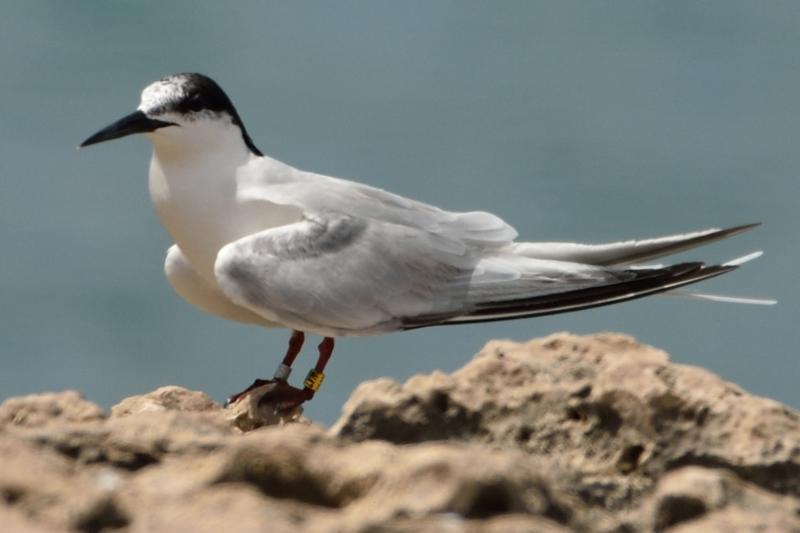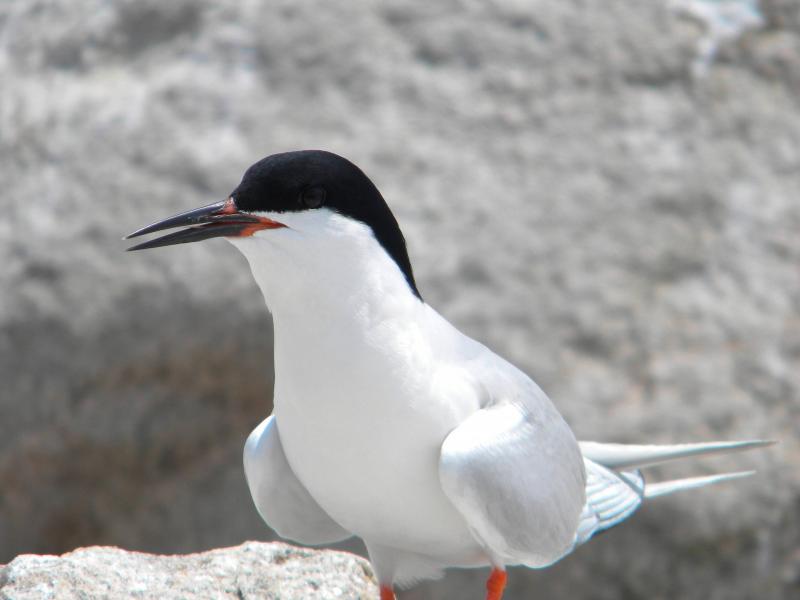Roseate Terns, from Maine to Aruba
 This Roseate Tern was hatched and banded on the Maine coast in summer of 2016 and was photographed on the island of Aruba in September, 2020. Courtesy of Michiel Oversteegen.
This Roseate Tern was hatched and banded on the Maine coast in summer of 2016 and was photographed on the island of Aruba in September, 2020. Courtesy of Michiel Oversteegen.
 A new discovery recently showing the migratory routes of roseate terns that nest in Maine. Courtesy of USF&W.
A new discovery recently showing the migratory routes of roseate terns that nest in Maine. Courtesy of USF&W.
 Two books by the authors that make great holiday gifts for enthusiasts of birds in two parts of the world.
Two books by the authors that make great holiday gifts for enthusiasts of birds in two parts of the world.
 This Roseate Tern was hatched and banded on the Maine coast in summer of 2016 and was photographed on the island of Aruba in September, 2020. Courtesy of Michiel Oversteegen.
This Roseate Tern was hatched and banded on the Maine coast in summer of 2016 and was photographed on the island of Aruba in September, 2020. Courtesy of Michiel Oversteegen.
 A new discovery recently showing the migratory routes of roseate terns that nest in Maine. Courtesy of USF&W.
A new discovery recently showing the migratory routes of roseate terns that nest in Maine. Courtesy of USF&W.
 Two books by the authors that make great holiday gifts for enthusiasts of birds in two parts of the world.
Two books by the authors that make great holiday gifts for enthusiasts of birds in two parts of the world.
Roseate terns are rather special birds. They nest on islands here in the Gulf of Maine—and two-thousand miles south of here on a tiny reef island off of the island nation of Aruba!
Here in Maine they nest on only a few islands, with numbers in recent years at just under 250 nesting pairs. One of the islands that they nest on is Eastern Egg Rock, off New Harbor on the Pemaquid Peninsula. On what has become the annual (except for this year because of COVID) Natural Resources Council of Maine summer trip out to Eastern Egg Rock on the Hardy Boat, we always enjoy picking out the relatively few roseate terns among the larger numbers of common terns that nest there. The roseate terns are elegant, with longer tails and snowier white outer wings. They fly with more rapid wingbeats and have a higher pitched distinctive call, quite distinct from the call of the common tern.
Later in the summer, when the young terns, both roseate and common, have learned to fly but are still dependent on the adults to feed them, we like to visit Pemaquid Harbor. The adults and their newly fledged young terns congregate there, the young birds sitting on floats and boats as they wait for their parents to return with tiny fish that they catch along the shore.
By late August all of the terns usually have moved on, heading south down the coast.
But the precise routes, timing, and wintering areas of the roseate terns have remained poorly known. Band returns from roseate tern colonies in Massachusetts and New York have shown that some of them winter on the northeastern coast of Brazil.
The roseate terns that nest in Maine and other parts of the Northeast are just one part of the distribution of a truly global species. Roseate terns nest in the Caribbean, eastern Africa, the Middle East, and widely across the coasts of south Asia and the western Pacific and south to Australia.
The birds that have nested on Aruba are among the southernmost breeding populations in the Americas. Sightings of roseate terns on and around Aruba are usually attributed to likely being from the population that breeds there.
But our photographer-birder friend on Aruba, Michiel Oversteegen, made a discovery this past September that changes that perception. He photographed several banded roseate terns, one of them close enough to read the number on the band. Michael recently got word that the bird had been banded as a still-too-young-to-fly chick in 2016 on the coast of Maine! In another turn of amazement, the bird was banded under our friend Steve Kress’s banding permit!
This is the first evidence that roseate terns from Maine may at least pass through and use the marine fish resources around Aruba during their fall migration. What an amazing connection between two distant worlds, whose human populations share responsibility for maintaining the healthy environment that these special and beautiful birds need across the hemisphere over which they roam.
To learn more about the birds of Aruba, purchase our book, “Birds of Aruba, Bonaire, and Curacao: A Site and Field Guide.” And our book, “Maine’s Favorite Birds,” makes a great gift for friends and family interested in birds right here in Maine!
Jeffrey V. Wells, Ph.D., is a Fellow of the Cornell Lab of Ornithology and Vice President of Boreal Conservation for National Audubon. Dr. Wells is one of the nation's leading bird experts and conservation biologists and author of the “Birder’s Conservation Handbook.” His grandfather, the late John Chase, was a columnist for the Boothbay Register for many years. Allison Childs Wells, formerly of the Cornell Lab of Ornithology, is a senior director at the Natural Resources Council of Maine, a nonprofit membership organization working statewide to protect the nature of Maine. Both are widely published natural history writers and are the authors of the popular book, “Maine’s Favorite Birds” (Tilbury House) and “Birds of Aruba, Bonaire, and Curaçao: A Site and Field Guide,” (Cornell University Press).
Event Date
Address
United States



























